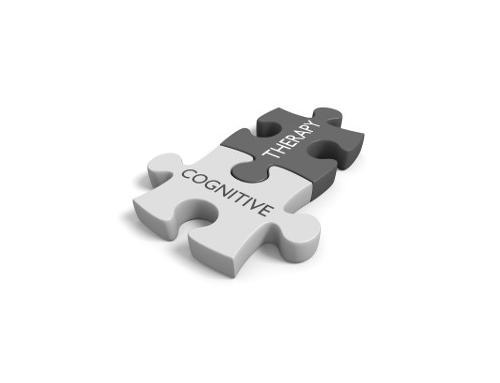 In its most basic sense, self-compassion can be described as remaining compassionate to one’s self during times of perceived inadequacy, general suffering, or failure instead of judging and criticizing one’s self or ignoring one’s pain. Leading experts in the study of self-compassion characterize self-compassion as being comprised of three components: self-kindness, common humanity, and mindfulness.11 Self-compassion entails accepting and appreciating the human condition, which includes, loss, making mistakes, as well as general limitations and shortcomings.
In its most basic sense, self-compassion can be described as remaining compassionate to one’s self during times of perceived inadequacy, general suffering, or failure instead of judging and criticizing one’s self or ignoring one’s pain. Leading experts in the study of self-compassion characterize self-compassion as being comprised of three components: self-kindness, common humanity, and mindfulness.11 Self-compassion entails accepting and appreciating the human condition, which includes, loss, making mistakes, as well as general limitations and shortcomings.
Considering that the principles of self-compassion may serve as a force for motivating growth and change, it may come as no surprise that it is often associated with overall well-being as well as improvements in resilience and psychopathology.10 Self-compassion was positively associated with both hope and life satisfaction17 as well as positive affect, integrity, ego, and meaning in life while it has been negatively associated with negative affect12, narcissism, and aggression.2 Self-compassion has also been positively associated with health-promoting behaviors.14
Other studies have questioned the efficacy of self-compassion-based interventions. Individuals who complete such a program demonstrate decreased stress, and increased resilience and positive risk-taking4, as well as improvements in emotional well-being.3 In fact, groups with high self-compassion report greater emotional well-being than those with low self-compassion, as well as lower physiological stress responses.5 For college-aged women those who participated in a brief self-compassion intervention also showed significant increases mindfulness, optimism, and self-efficacy and significant decreases in rumination in comparison to control interventions.15 Some mobile applications rooted in self-compassion have been shown to improve body image13, which could be due, in part, to the mediating role self-compassion has on perfectionism1, making it an effective therapeutic tool for treating disordered eating.
Interestingly, self-compassion may also be useful as an emotional regulation strategy in individuals with major depression disorder7, reducing depressive symptoms.16 Some suggest that these improvements were significantly related to the self-kindness and common humanity pillars of self-compassion8 which buffer against self-coldness present in depressed individuals.9 In sum, although it may be counterintuitive, the evidence discussed suggests that taking an accepting approach to one’s failures and misfortune may motivate them to improve themselves.6 Self-compassion has been supported as a tool one may use on their journey towards self-improvement or one that therapists may teach their clients in order to maximize therapeutic outcomes.
1. Barnett, & Sharp. (2016). Maladaptive perfectionism, body image satisfaction, and disordered eating behaviors among U.S. college women: The mediating role of self-compassion. Personality and Individual Differences, 99(C), 225-234.
2. Barry, Loflin, & Doucette. (2015). Adolescent self-compassion: Associations with narcissism, self-esteem, aggression, and internalizing symptoms in at-risk males. Personality and Individual Differences, 77, 118-123.
3. Bluth, K., & Blanton, P. (2014). Mindfulness and Self-Compassion: Exploring Pathways to Adolescent Emotional Well-Being. Journal of Child and Family Studies, 23(7), 1298-1309.
4. Bluth, & Eisenlohr-Moul. (2017). Response to a mindful self-compassion intervention in teens: A within-person association of mindfulness, self-compassion, and emotional well-being outcomes. Journal of Adolescence, 57, 108-118.
5. Bluth, K., Roberson, P., Gaylord, N., Faurot, E., Grewen, S., Arzon, A., & Girdler, K. (2016). Does Self-Compassion Protect Adolescents from Stress? Journal of Child and Family Studies, 25(4), 1098-1109.
6. Breines, J., & Chen, S. (2012). Self-Compassion Increases Self-Improvement Motivation. Personality and Social Psychology Bulletin, 38(9), 1133-1143.
7. Diedrich, Grant, Hofmann, Hiller, & Berking. (2014). Self-compassion as an emotion regulation strategy in major depressive disorder. Behaviour Research and Therapy, 58(C), 43-51.
8. Hall, C., Row, K., Wuensch, K., & Godley, K. (2013). The Role of Self-Compassion in Physical and Psychological Well-Being. The Journal of Psychology, 147(4), 311-323.
9. Körner, A., Coroiu, A., Copeland, L., Gomez-Garibello, C., Albani, C., Zenger, M., & Brähler, E. (2015). The Role of Self-Compassion in Buffering Symptoms of Depression in the General Population. PLoS ONE, 10(10), E0136598.
10. Macbeth, & Gumley. (2012). Exploring compassion: A meta-analysis of the association between self-compassion and psychopathology. Clinical Psychology Review, 32(6), 545-552.
11. Neff, K. (2018). Self-Compassion. Retrieved from http://selfcompassion.org/
12. Phillips, W., & Ferguson, S. (2013). Self-Compassion: A Resource for Positive Aging. Journals of Gerontology Series B: Psychological Sciences and Social Sciences, 68(4), 529-539.
13. Rodgers, Donovan, Cousineau, Yates, Mcgowan, Cook, . . . Franko. (2018). BodiMojo: Efficacy of a Mobile-Based Intervention in Improving Body Image and Self-Compassion among Adolescents. Journal of Youth and Adolescence, 47(7), 1363-1372.
14. Sirois, F., Kitner, R., Hirsch, J., & Kazak, Anne E. (2015). Self-Compassion, Affect, and Health-Promoting Behaviors. Health Psychology, 34(6), 661-669.
15. Smeets, E., Neff, K., Alberts, H., & Peters, M. (2014). Meeting Suffering With Kindness: Effects of a Brief Self‐Compassion Intervention for Female College Students. Journal of Clinical Psychology, 70(9), 794-807.
16. Yamaguchi, Kim, & Akutsu. (2014). The effects of self-construals, self-criticism, and self-compassion on depressive symptoms. Personality and Individual Differences, 68(C), 65-70.
17. Yang, Zhang, & Kou. (2016). Self-compassion and life satisfaction: The mediating role of hope. Personality and Individual Differences, 98(C), 91-95.
by Callie Patterson
Callie Patterson is a graduate student pursuing a degree in psychological sciences at Northern Arizona University.
The content on this website is not intended to be a substitute for professional medical advice, diagnosis, or treatment. Always seek the advice of your physician or other qualified health provider with any questions you may have regarding a medical condition.




